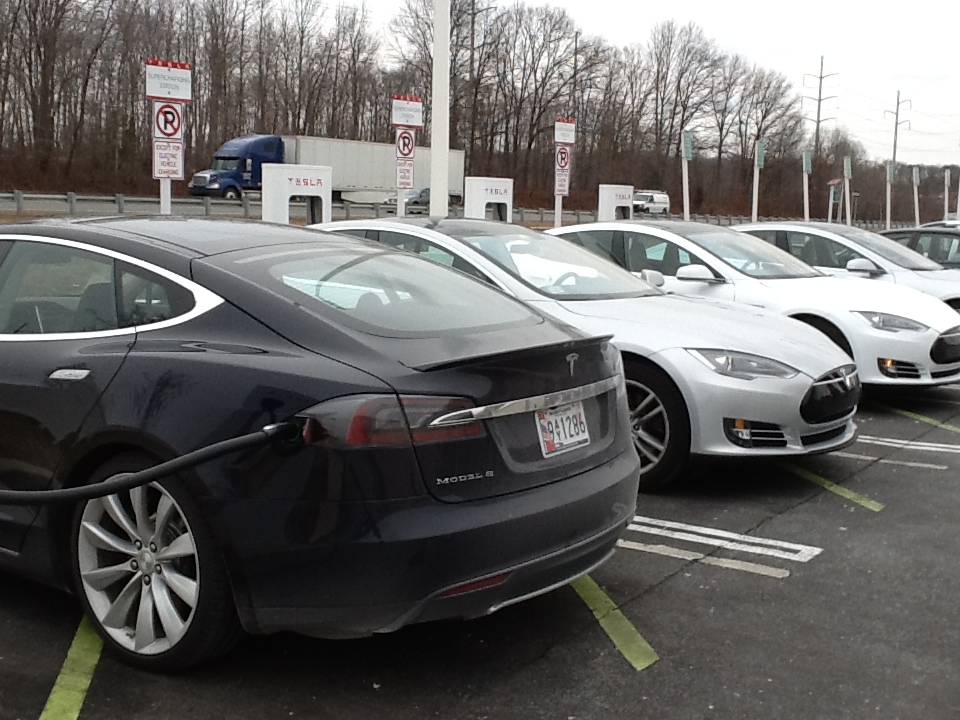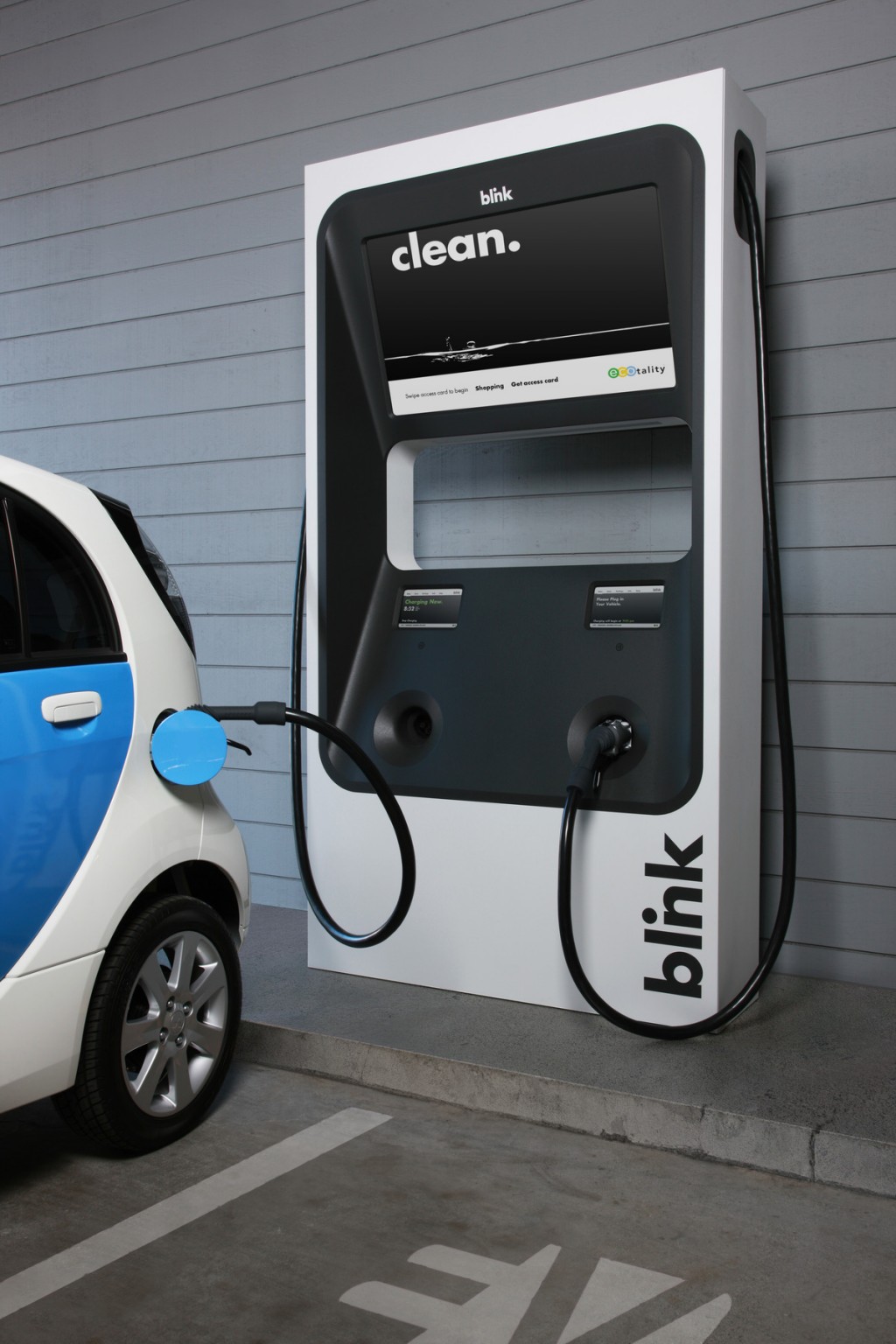Many people like to think they can predict the future, but only futurists (and psychics) get paid to do it.
And futurist Lars Thomsen thinks that electric cars are such a disruptive technology that they will make gasoline cars obsolete--starting in 2016, or much earlier than most other analysts suggest.
Thomsen delivered a speech this past September, at the 25th International AVL Conference “Engine & Environment” in Graz, Austria, that's contained in the clip above.
It's also in German, which may make the 36-minute-long video a bit impenetrable for non-German speakers.
ALSO READ: Life With Tesla Model S: Battery Upgrade From 60 kWh To 85 kWh
Tesla Road Trip from MD to CT, Feb 2013 - Tesla Model S cars at Delaware SuperCharger location
But Thomsen suggests that electric cars are a sufficiently disruptive technology that they will lead to quick behavior changes by consumers in the market for automobiles.
He uses the example of Nokia as a cautionary tale, noting that less than 10 years ago, that company dominated the world market for mobile phones.
In June 2007, Apple released its first-generation iPhone, a radical new entry from a company that for three decades had confined itself to personal computers and portable music devices.
The iPhone was such a radical rethinking of what a phone should be and how it should operate--essentially a small Internet-connected computer, operated via a touchscreen, that also provided voice calls--that it completely reset the market's vision of what a "mobile phone" should be.
It was only a handful of early adopters who were initially excited about Apple's entry into a tough, low-margin industry dependent on volume and price competition.
Little more than a year later, the first version of the Android mobile-phone operating system was released.
Five years later, most readers of this site will know the outcome: Phones running either Android or Apple iOS dominate the mobile market in the developed world, and Nokia has plummeted so far that its mobile business was recently sold to Microsoft.
DON'T MISS: U.S. Drivers Ready For Electric Cars, Even If They Don't Know It Yet

ECOtality Blink DC fast charger plugged in
While the scale, cost, and product cycles of the global vehicle and mobile-phone businesses are very different, Thomsen suggests that electric cars--which now excite only early adopters--could prompt similar changes in the auto market.
For more on his views, a translation of a Die Zeit article from last month provides a few nuggets.
Tesla may well be the tipping point, he says, showing that a radically new model is not only possible, but something that buyers will eagerly embrace.
" You can drive companies out of business if they they [are] sleepy," he says in the translated article.
He points to the long list of television makers globally who went out of business as tube TVs gave way to flat screens.
And then there's Kodak, which invented digital photography, but failed to profit from it and went through bankruptcy, taking with it tens of thousands of jobs in its upstate New York hometown as well as the rest of the world.
CHECK OUT: 2015 Ford F-150 Gas Mileage: What We Know So Far
Is the auto industry at a similar point? Battery prices will fall, he says, and public charging infrastructure will continue to be installed.
"As early as 2016," the futurist predicts, demand for vehicles powered by internal-combustion engines "will decline massively"--with even demand for hybrid cars collapsing by 2018.
In that scenario, he notes, government rules to boost gas mileage and reduce carbon emissions will become meaningless as battery-powered zero-emission vehicles proliferate.
What do you think? Is Thomsen far too optimistic, or could this radical scenario actually take place?
Leave us your thoughts in the Comments below.
[hat tip: George Betak]
_______________________________________________













